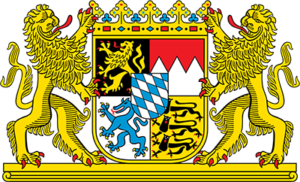Expansion of the Munich “science line” has started
The extension, which was celebrated with an official groundbreaking ceremony, will connect the IZB in Martinsried to the Munich subway system.
Februar 2023
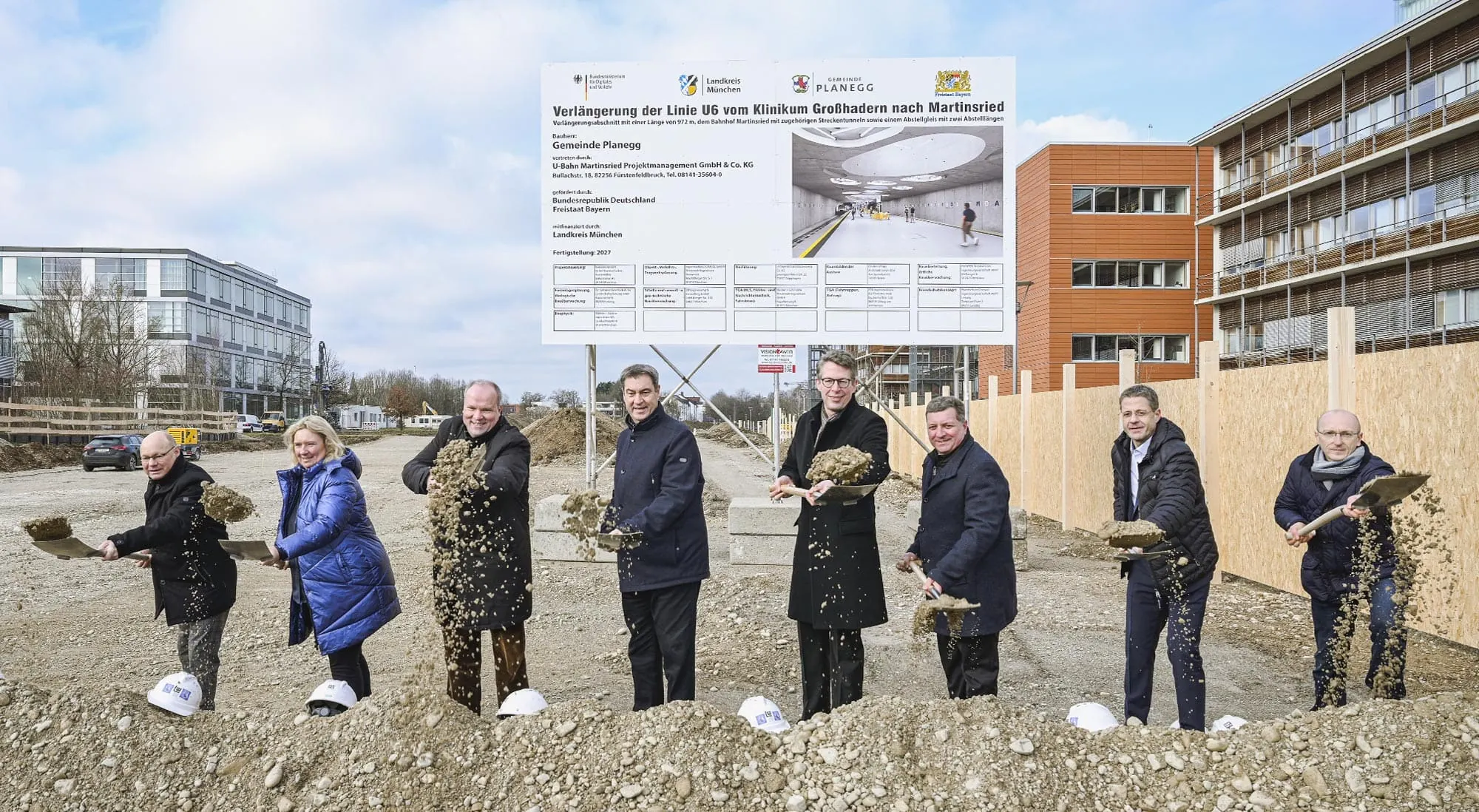
© Dominik Gierke
Groundbreaking ceremony with Mayor Hermann Nafziger, Kerstin Schreyer, Bavarian Economic Policy Spokeswoman, District Administrator Christoph Göbel, Minister President Dr. Markus Söder, Markus Blume, State Minister for Science and the Arts, Christian Bernreiter for Housing, Construction and Transportation, Managing Director Engineering and Turnkey Construction of LEONHARD WEISS Steffen Schönfeld and PMG Managing Director Dr. Dimitri Steinke.
“The improved accessibility of our Munich Biotech Valley not only strengthens our research location, but is also of great benefit to our international guests from science and industry. I am looking forward to our broad international network of excellent scientists grow together further.”
Dr. Peter Hanns Zobel, Managing Director of the Innovation and Start-Up Center for Biotechnology
Bavaria’s Minister-President Dr. Markus Söder, together with Minister of Transport Christian Bernreiter Minister of Science Markus Blume, the District Administrator of Munich, Christoph Göbel, the First Mayor of the municipality of Planegg, Hermann Nafziger, and the Managing Director of the Project Management Company (PMG) Dr. Dimitri Steinke, broke ground for the extension of subway line 6 on February 6.
In the future, this will link the Martinsried site, which in addition to the Ludwig Maximilian University (LMU) Biocampus also houses the Max Planck Institute of Biochemistry (MPIB) and the Biotechnology Innovation and Start-up Center (IZB), to other Munich science locations such as the Technical University (TU) in Garching and the LMU in Maxvorstadt.
Minister-President Dr. Markus Söder: “The high-tech line continues to grow! Groundbreaking ceremony for the extension of the Munich U6 to Martinsried: We are investing around 77 million euros in connecting the top university hospital Großhadern with the Martinsried science campus as a breeding ground for future Nobel Prize winners. Bavaria’s future lies in science and research. With the expansion of the science axis, we are taking a great leap into the future: we are developing the site and creating the prosperity and jobs of tomorrow. Thanks to all involved.”
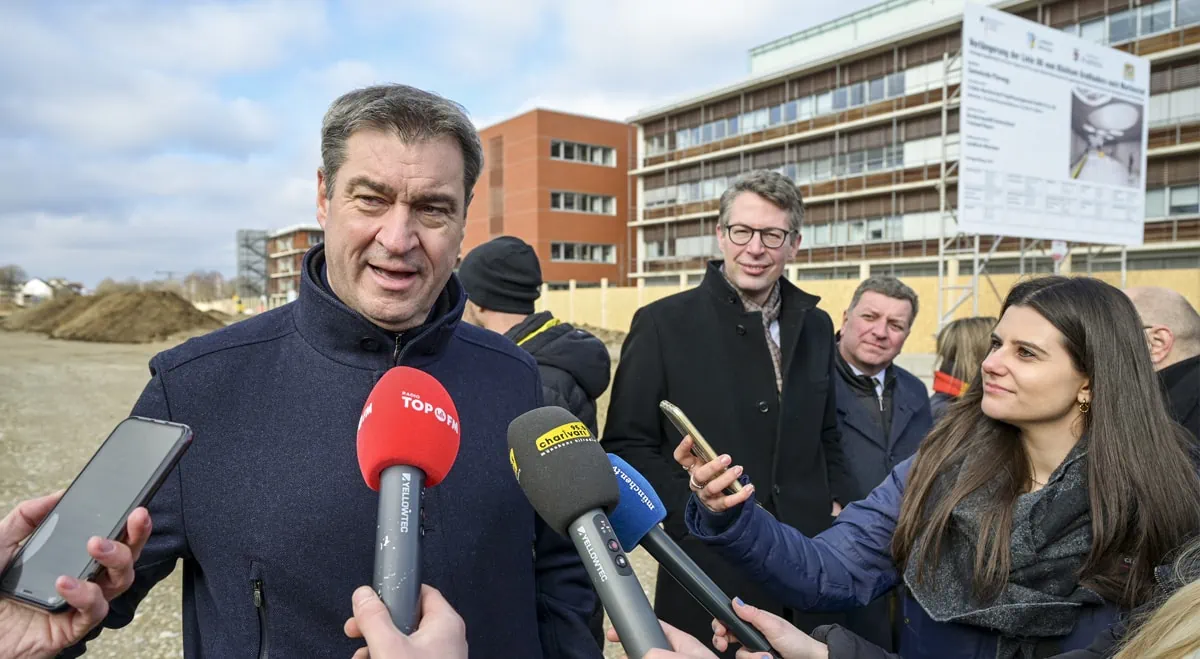
© Dominik Gierke
Dr. Markus Söder, Bavarian Minister President
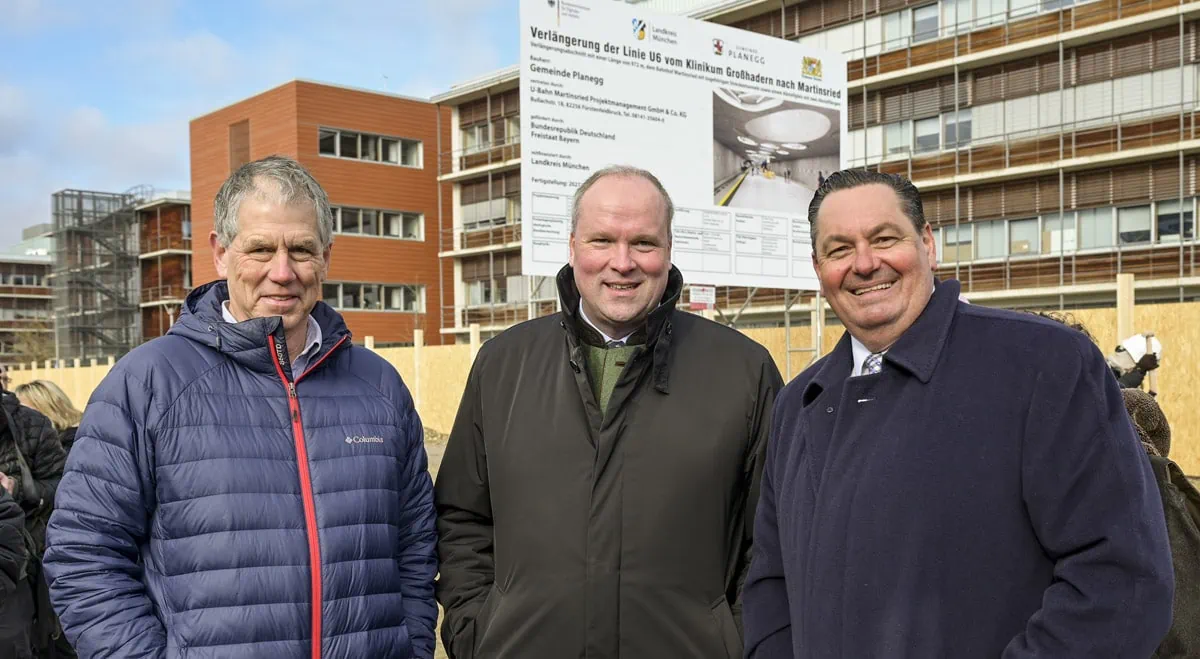
© Dominik Gierke
Prof. Tobias Bonhoeffer, Director MPI for Biological Intelligence, Manfred Göbel, District Administrator Munich, Dr. Peter Hanns Zobel, Managing Director IZB
In his speech, Minister of Transport Christian Bernreiter thanked all those involved in the project: “Today we are sending a clear signal for the expansion and sustainability of Munich’s public transport system. With the extension of the U6 to Martinsried, including a Park & Ride facility, we are increasing the attractiveness of public transport and at the same time strengthening Munich as a science location. The project is therefore of great importance to the Free State in two respects and is also reflected in its financial contribution. The project organisation is also a successful example of close and constructive cooperation with the district of Munich and the municipality of Planegg.”
Science Minister Markus Blume emphasises: “A line from excellence to excellence: with the extension of the U6 science line, we are connecting the Garching Research Centre with the life science campus in Martinsried, which is unique in all of Europe. This is a key step for the future of the research mecca in and around Munich and the entire high-tech state of Bavaria. Because science needs networking – in all areas.”
Dr. Peter Hanns Zobel, Managing Director of the Innovation and Start-Up Center for Biotechnology added: “The improved accessibility of our Munich Biotech Valley not only strengthens our research location, but is also of great benefit to our international guests from science and industry. I am looking forward to our broad international network of excellent scientists grow together further.”
Planegg’s First Mayor Hermann Nafziger greeted the almost 200 guests with a converted proverb: “What goes around comes around”. After summarising the more than 30-year history of the U6 extension, he emphasised: “This extension of the U6 to the Martinsried science location is important: for connecting the citizens of Martinsried, the scientists, the students and the employees in the industrial estate here on site to the underground network. The flow of commuters to Martinsried to the industrial estate and to the campus will benefit from this underground extension and lead to a reduction in traffic.”
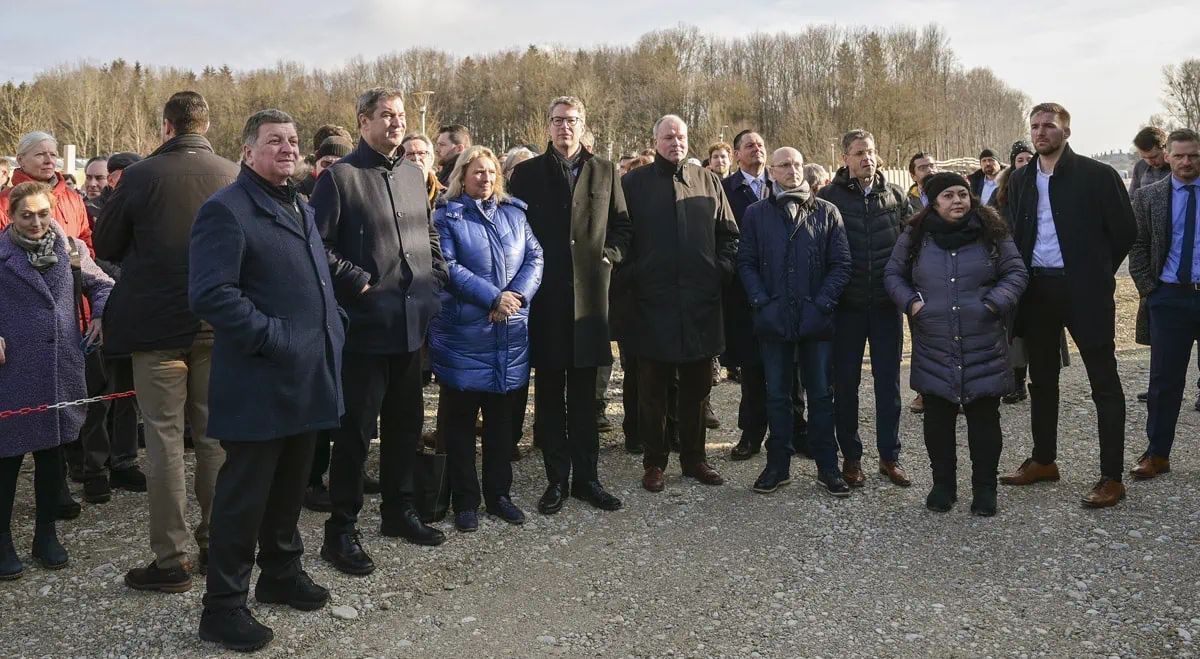
© Dominik Gierke
Guests at the groundbreaking ceremony for the subway extension from Großhadern to Martinsried
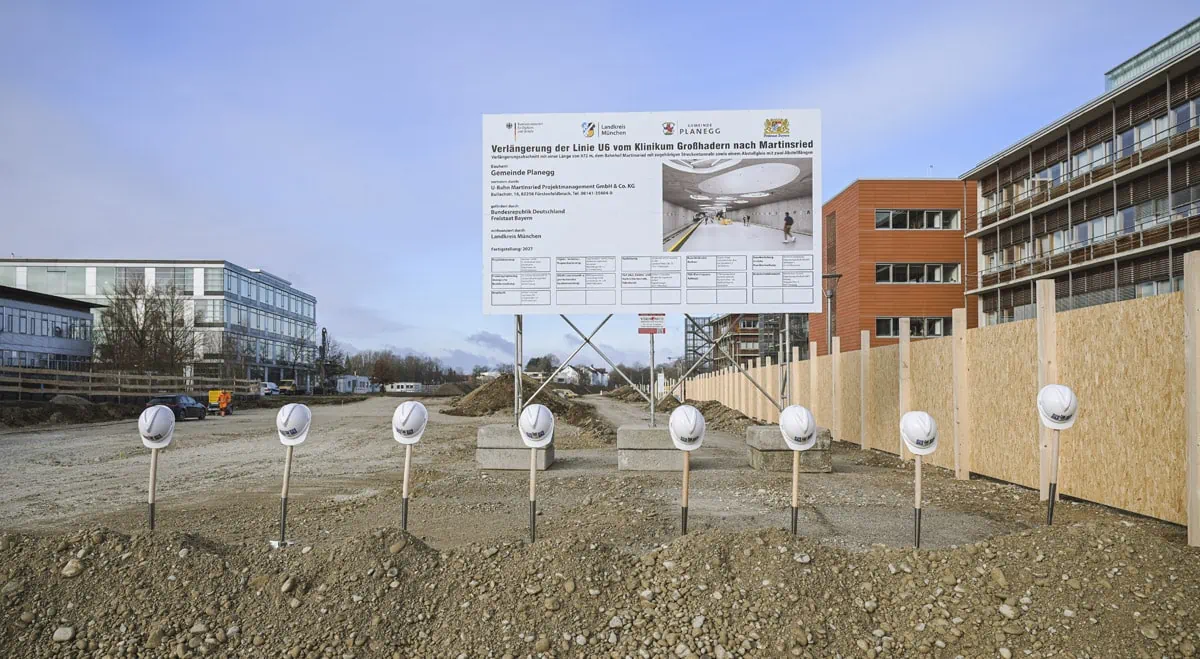
© Dominik Gierke
Construction Site Subway Extension of the U6 to Martinsried
District Administrator Christoph Göbel: “With today’s ground-breaking ceremony for the U6 extension, a transport and infrastructure project that is important for the district of Munich is literally beginning to take shape. The direct rail connection of the two large science locations in the northern and western districts of Munich via Munich city centre will bring a considerable gain in time and comfort for employees and students. The second extension of an underground from the state capital into the district of Munich underlines the importance of the district of Munich as a business location and takes into account the persistently large number of commuters from the city. The new rail section therefore represents a major investment in the future of the municipality, the district and the Free State of Bavaria alike in several respects.”
The extension line covers the area between the existing stabling facility at Klinikum Großhadern underground station in the east on the one hand and the future end at Martinsried station in the Planegg municipal area in the west on the other. A project management company is responsible for the planning and coordination of the U6 extension from Klinikum Großhadern to Martinsried, in which the Free State of Bavaria, the district of Munich and the municipality of Planegg are shareholders.
The total cost of the project is currently around 212 million euros. The project is financed in partnership by the federal government, the Free State, the district of Munich and the municipality of Planegg. Due to the outstanding importance of the project for Bavaria as a centre of science, the Free State is making a particularly large contribution to the financing. Of the eligible costs for the line infrastructure, the Free State will cover 20 percent, of the non-eligible costs 50 percent. The costs of the already completed Park & Ride facility at Campus Martinsried will be covered by the Free State to the tune of 85 per cent. The Free State also subsidises the purchase of additional underground vehicles by 75 per cent. In total, the Free State’s funding is expected to be in the region of 77 million euros.
